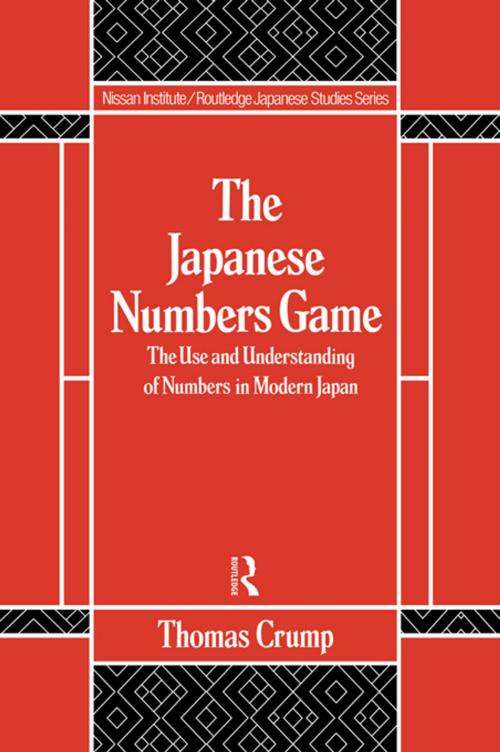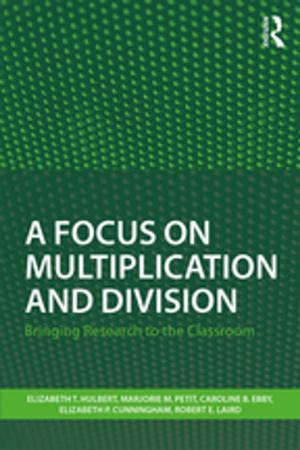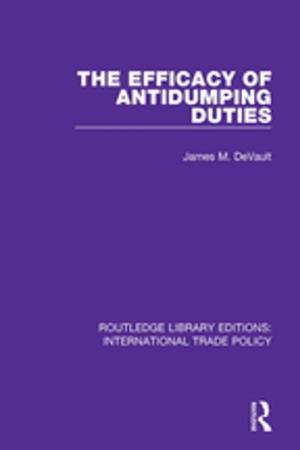Japanese Numbers Game
Nonfiction, Social & Cultural Studies, Social Science, Cultural Studies, Ethnic Studies, Anthropology| Author: | T Crump | ISBN: | 9781134935581 |
| Publisher: | Taylor and Francis | Publication: | November 12, 2012 |
| Imprint: | Routledge | Language: | English |
| Author: | T Crump |
| ISBN: | 9781134935581 |
| Publisher: | Taylor and Francis |
| Publication: | November 12, 2012 |
| Imprint: | Routledge |
| Language: | English |
An almost obsessional use of numbers characterizes Japanese popular culture. A wide variety of numerical formulae and strategies provide the means for explaining events and solving problems occurring in everyday life. These include such matters as the choice of the name for a child, ranking in almost any game or sport, the diagnosis and cure of illness or the decision to accept a new job. This text provides a general study of the field of Japanese popular numeracy. It introduces the reader to a world of numbers in which fortune-telling, the abacus and games involving numbers, as well as curious numerical names (of both people and places), illustrate the importance of systems of counting, calculation and forecasting. The study explores the cultural roots of attitudes towards numbers and makes suggestions about the contemporary implications of a culture in which mechanical numeracy (and number obsession) is general but the highest levels of academic mathematics still fall short of world standards.
An almost obsessional use of numbers characterizes Japanese popular culture. A wide variety of numerical formulae and strategies provide the means for explaining events and solving problems occurring in everyday life. These include such matters as the choice of the name for a child, ranking in almost any game or sport, the diagnosis and cure of illness or the decision to accept a new job. This text provides a general study of the field of Japanese popular numeracy. It introduces the reader to a world of numbers in which fortune-telling, the abacus and games involving numbers, as well as curious numerical names (of both people and places), illustrate the importance of systems of counting, calculation and forecasting. The study explores the cultural roots of attitudes towards numbers and makes suggestions about the contemporary implications of a culture in which mechanical numeracy (and number obsession) is general but the highest levels of academic mathematics still fall short of world standards.















